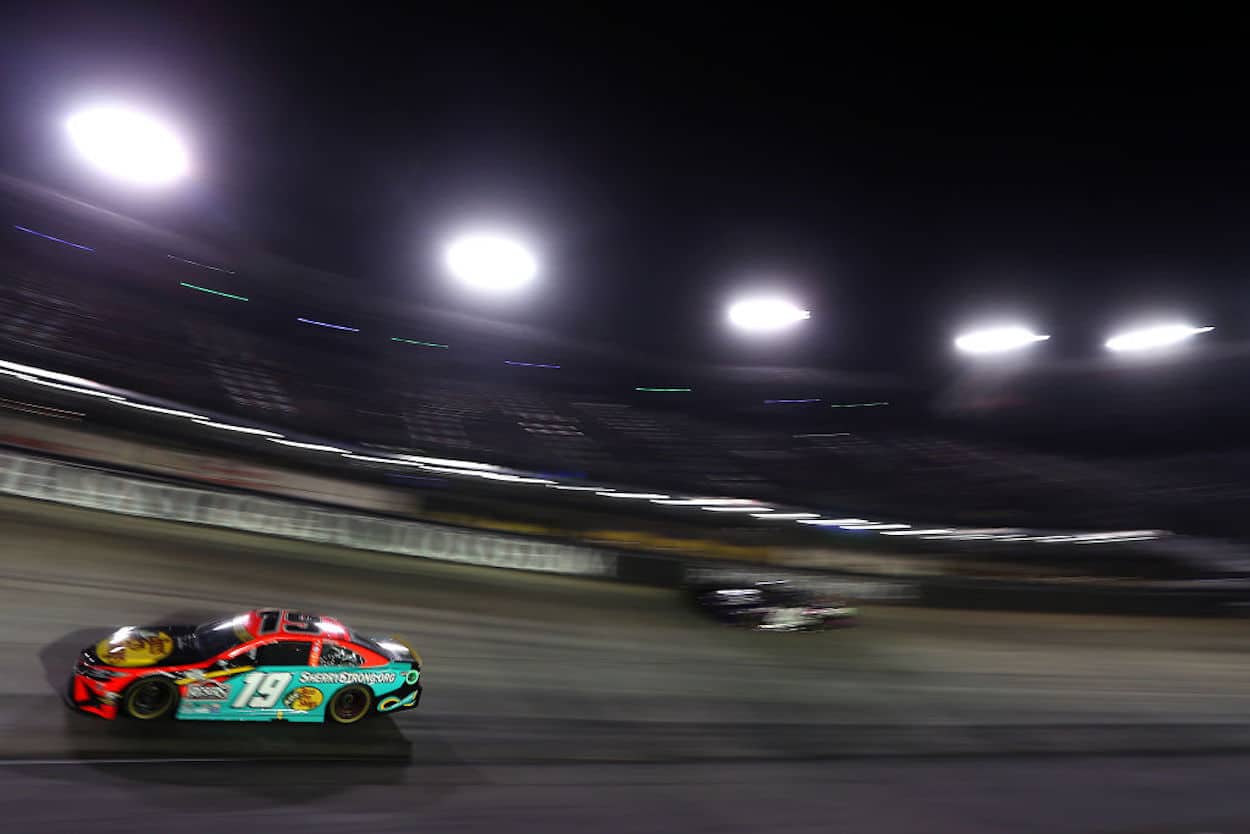NASCAR
NASCAR’s Move to All But Abandon Saturday Night Racing for the Cup Series in 2023 Is a Major Head-Scratcher

Ever since Bristol Motor Speedway hosted its first Saturday night race for the NASCAR Cup Series in 1978, drivers, fans, track promoters, and virtually all of NASCAR’s major stakeholders have wholeheartedly embraced this idea.
After all, what’s not to love about racing under the lights?
Yet, for some inexplicable reason, NASCAR’s premier series is largely abandoning Saturday night races in 2023 in favor of more traditional Sunday afternoon events. Consider: Of the 36 Cup Series races, only two — Daytona in August and Bristol in September — are slated to be contested under the stars on a Saturday night.
Since NASCAR doesn’t typically provide any reasoning or justification for its schedule, we can only speculate about why the sport is moving away from Saturday night races, but let’s take a look at several reasons why the sanctioning body should strongly consider adding at least a handful of Saturday night races beginning in 2024.
Saturday night races are a nod to NASCAR’s grassroots
Every Saturday night from around mid-March to mid-October, drivers all over the country flock to their local short track — most of them transporting their cars there on a rusty, open trailer. While the winner’s purse might not be but a few hundred bucks, there’s a big trophy and a lot of pride at stake — and that’s plenty enough incentive for them to show up and try their dead-level hardest to get their Late Model or Mini Stock car to Victory Lane.
If NASCAR wants to establish some solidarity and connection with its grassroots racers — many of whom harbor dreams of making it to the big leagues someday — having its premier series run at least a handful of Saturday night races each year is one way to do it.
Saturday night races are by nature more exciting than Sunday afternoon races
Some of the most enthralling moments in NASCAR history have come at Saturday night short-track races. Think Dale Earnhardt versus Terry Labonte at Bristol in 1999 … and 1995. Think about Dale Earnhardt Jr.’s win at Daytona in the summer of 2001, just five months after Dale Sr.’s tragic death in the Daytona 500. Think about the infamous fight at Richmond between Ricky Rudd and Kevin Harvick in 2003.
All these unforgettable moments took place on a Saturday night — when it seems like the excitement, intensity and potential for controversy and memorable finishes are always ratcheted up a notch or two or several.
Saturday night races make more logistical sense on several fronts
Now for more practical matters. Saturday night races — particularly those held in the summer — offer much more bearable temperatures than races contested during the daytime. Obviously, it’s a lot cooler once the sun goes down, so night racing can help drivers inside their race cars not swelter to the extent that they would in the heat of the day.
Saturday night races are also more family-friendly than Sunday afternoon events in that they give competitors part of the weekend at home with their families. Who wouldn’t want that? And if the race gets postponed a day by rain — which inevitably happens a few times every season — the event will be rescheduled to Sunday as opposed to Monday, when most fans have to work and won’t be able to attend.
It’s also worth mentioning that most NFL games take place on Sunday afternoons. Given that the NFL draws by far the highest TV ratings of any professional sport, it doesn’t make a lick of practical sense why NASCAR would want to go head-to-head with the NFL for viewers when moving races to Saturday nights would eliminate this competition.
Last but not certainly not least, may we not forget that the vast majority of the tracks on the 2023 Cup Series schedule have lights. So, why ignore them? These lighting systems cost millions of dollars to install and maintain, so not putting them to good use is a waste of resources and a true head-scratcher.











